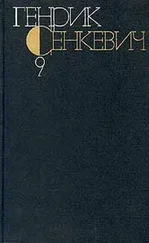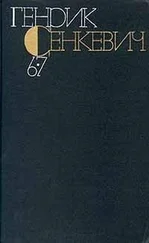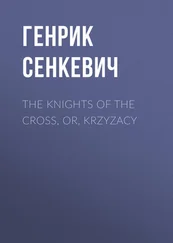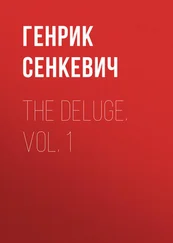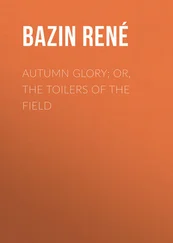Генрик Сенкевич - On the Field of Glory
Здесь есть возможность читать онлайн «Генрик Сенкевич - On the Field of Glory» — ознакомительный отрывок электронной книги совершенно бесплатно, а после прочтения отрывка купить полную версию. В некоторых случаях можно слушать аудио, скачать через торрент в формате fb2 и присутствует краткое содержание. Жанр: foreign_antique, foreign_prose, на английском языке. Описание произведения, (предисловие) а так же отзывы посетителей доступны на портале библиотеки ЛибКат.
- Название:On the Field of Glory
- Автор:
- Жанр:
- Год:неизвестен
- ISBN:нет данных
- Рейтинг книги:3 / 5. Голосов: 1
-
Избранное:Добавить в избранное
- Отзывы:
-
Ваша оценка:
- 60
- 1
- 2
- 3
- 4
- 5
On the Field of Glory: краткое содержание, описание и аннотация
Предлагаем к чтению аннотацию, описание, краткое содержание или предисловие (зависит от того, что написал сам автор книги «On the Field of Glory»). Если вы не нашли необходимую информацию о книге — напишите в комментариях, мы постараемся отыскать её.
On the Field of Glory — читать онлайн ознакомительный отрывок
Ниже представлен текст книги, разбитый по страницам. Система сохранения места последней прочитанной страницы, позволяет с удобством читать онлайн бесплатно книгу «On the Field of Glory», без необходимости каждый раз заново искать на чём Вы остановились. Поставьте закладку, и сможете в любой момент перейти на страницу, на которой закончили чтение.
Интервал:
Закладка:
Henryk Sienkiewicz
On the Field of Glory: An Historical Novel of the Time of King John Sobieski
My Dear Sir Thomas:
Railroads are to nations what arteries and veins are to each individual. Every part of a nation enjoys common life with every other through railroads. Books bring remote ages to the present, and assemble the thoughts of mankind and of God in one divine company. I find great pleasure on railroads in the day and the night, at all seasons. You enjoy books with a keen and true judgment. Let me inscribe to you, therefore, this volume.
Jeremiah Curtin.INTRODUCTORY
The book before us gives pictures of Polish character and life on the eve of the second great siege of Vienna.
Twice was that city beleaguered by Turkey. The first siege was commanded by Solyman, that Sultan who was surnamed Magnificent by western nations; to Turks he was known as the Lord of his Age and the Lawgiver.
The first siege was repelled by the bravery of the garrison, by the heroism of Count Salm its commander, by the terrible weather of 1529, and also through turbulence of the Janissary forces. The second siege was crushed in 1683 by Sobieski's wise strategy, the splendid impetus of the Poles, and the firmness of the allies.
Had the Polish king not appeared the Sultan would have triumphed, hence Sobieski and his men are hailed ever since as the saviours of Vienna.
The enthusiasm of the time for Sobieski and his force was tremendous.
"There was a man sent from God whose name was John," this was the Gospel read at the Thanksgiving Mass in Saint Stephen's, the cathedral, the noble old church of that rescued and jubilant city. Some Poles went to Rome after that to get relics; the Pope gave this answer: "Take earth steeped in blood from the field where your countrymen fell at Vienna."
Many times have men here in America asked me: Are the Poles really held by such an intensity of passion? if they are, why does it seize them, whence does it come, what is the source and the cause of it? I reply to these questions as best I am able, and truthfully: It comes from the soul of the Slavs in some part, and in some part from history. The Poles have as a race their original gift to begin with; this gift, or race element, has met in its varied career certain peoples, ideas, and principles. The result of this meeting is this: that the Polish part of the Slav world holds touching itself an unconquerable ideal. It has absorbed, as it thinks, certain principles from which it could not now separate.
The Poles could not if they would, and would not if they could, be dissevered from that which, as they state, they have worked out in history, that which no power on earth can now take from them, and to which they are bound with the faith of a martyr.
Through ideas and principles, that is, truths gained in their experience as a people, and which in them are incarnate and living, the Poles feel predestined to triumph, time, of course, being given.
What are these ideas and principles? men ask of me often. Combined all in one they mean the victory and supremacy of Poland. They have been worked out during centuries, I answer, of Polish experience with Germany, with Russia, with Rome and Byzantium, with Turks and with Tartars. But beyond all do they come as the fruit of collisions with Germany and Russia, and as the outcome of teachings from Rome and the stern opposition of Byzantium. Through this great host of enemies and allies, and their own special character, came that incisive dramatic career which at last met a failure so crushingly manifest.
The inward result and the spiritual harvest to be reaped from this awful catastrophe are evident only through what is revealed in the conduct, the deeds, and the words of the people who had to wade through the dreadful defeat and digest the experience.
Polish character in most of its main traits was developed completely even earlier than the days of Sobieski, and the men who appeared then in action differ little from those of the present, hence the pictures in this volume are perfectly true and of far-reaching interest in our time.
JEREMIAH CURTIN.January, 1906.
CHAPTER I
The winter of 1682-83 was a season of such rigor that even very old people could not remember one like it. During the autumn rain fell continually, and in the middle of November the first frost appeared, which confined waters and put a glass bark upon trees of the forest. Icicles fastened on pines and broke many branches. In the first days of December the birds, after frequent biting frosts, flew into villages and towns, and even wild beasts came out of dense forests and drew near the houses of people. About Saint Damasius' day the heavens became clouded, and then snow appeared; ten days did it fall without ceasing. It covered the country to a height of two ells; it hid forest roads, it hid fences, and even cottage windows. Men opened pathways with shovels through snow-drifts to go to their granaries and stables; and when the snow stopped at last, a splitting frost came, from which forest trees gave out sounds that seemed gunshots.
Peasants, who at that time had to go to the woodlands for fuel, went in parties to defend themselves, and were careful that night should not find them at a distance from the village. After sunset no man dared leave his own doorstep unless with a fork or a bill-hook, and dogs gave out, until daylight, short frightened yelps, as they do always when barking at wolves which are near them.
During just such a night and in such a fierce frost a great equipage on runners pushed along a forest road carefully; it was drawn by four horses and surrounded by attendants. In front, on a strong beast, rode a man with a pole and a small iron pot on the end of it; in this pot pitch was burning, not to make the road visible, for there was moonlight, but to frighten away wolves from the party. On the box of the equipage sat a driver, and on a saddled horse a postilion, and at each side rode two men armed with muskets and slingshots.
The party moved forward very slowly, since the road was little beaten and in places the snow-drifts, especially at turnings, rose like waves on the roadway.
This slowness disturbed Pan Gideon Pangovski, who, relying on his numerous attendants and their weapons, had determined to travel, though in Radom men had warned him of the danger, and all the more seriously since in going to Belchantska he would have to pass the Kozenitse forests.
Those immense forests began at that period a good way before Yedlina, and continued far beyond Kozenitse to the Vistula, and toward the other side of the Stenjytsa, and northward to Rytchivol.
It had seemed to Pan Gideon that, if he left Radom before midday, he would reach home very easily at sunset. Meanwhile he had been forced in a number of places to open the road close to fences; some hours were lost at this labor, so that he came to Yedlina about twilight. Men there gave the warning that he would better remain for the night in the village; but since at the blacksmith's a pitch light had been found to burn before the carriage, Pan Gideon commanded to continue the journey.
And now night had surprised him in the wilderness.
It was difficult to go faster because of increasing snowdrifts; hence Pan Gideon was more and more disquieted and at last fell to swearing, but in Latin, lest he frighten the two ladies who were with him, Pains Vinnitski his relative and his ward Panna Anulka Sieninski.
Panna Anulka was young and high-hearted, in no degree timid. On the contrary, she drew aside the leather curtain at the window, and, commanding the horseman at the side not to stop the view to her, looked at the drifts very joyfully, and at the pine trunks with long strips of snow on them over which played reddish gleams from the pitch pot, which with the moonlight made moving figures very pleasant to her eyesight. Then rounding her lips to the form of a bird bill she began to whistle, her breath became visible and was rosier than firelight, this too amused her.
Читать дальшеИнтервал:
Закладка:
Похожие книги на «On the Field of Glory»
Представляем Вашему вниманию похожие книги на «On the Field of Glory» списком для выбора. Мы отобрали схожую по названию и смыслу литературу в надежде предоставить читателям больше вариантов отыскать новые, интересные, ещё непрочитанные произведения.
Обсуждение, отзывы о книге «On the Field of Glory» и просто собственные мнения читателей. Оставьте ваши комментарии, напишите, что Вы думаете о произведении, его смысле или главных героях. Укажите что конкретно понравилось, а что нет, и почему Вы так считаете.

